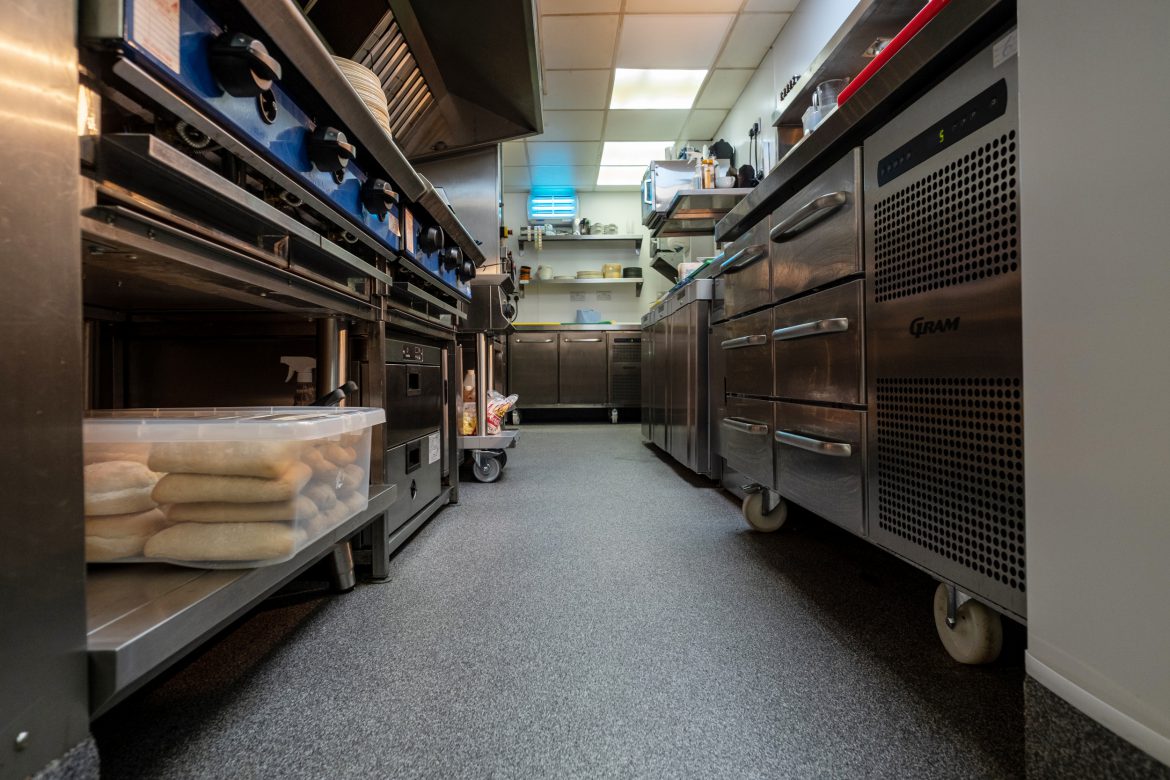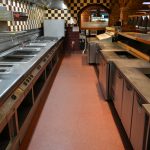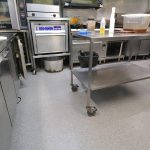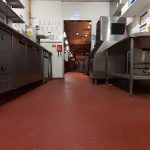Whether it’s a hot or cold environment, resin flooring might be the option you need for your heat resistant flooring requirements.
The resistance of a resin floor to heat is dependent on a number of factors:
- Nature and type of heat source
- Duration of contact with the floor
- Rate of change in temperature
The range of resin flooring types available offers varying levels of temperature resistance, typically ranging from -30°C to 120°C making it crucial to get a deeper understanding of the above factors to ensure the correct resin flooring system is selected and installed. Any floor must be designed to meet specific requirements, all of which will differ in line with operating conditions.
The required specification information can be qualified from a site survey (read more about our onsite survey option) and asking the right questions, however, please read here for further details.
1. Nature and type of heat source
The source of the heat and how it is applied to the floor needs to be understood. As an example, an oven may produce heat that is radiated onto the floor so understanding how this is transferred and at what temperatures will be is essential when determining what heat resistant flooring solutions should be considered. In certain (extreme) circumstances, a resin floor may not be suitable and therefore we will advise on the optimal solution.
If a liquid is being directly spilt onto the floor then often a much higher heat transfer can occur, increasing the potential risk of damage. Understanding the temperature of these liquids will help us identify what is suitable for these areas.
2. Duration of contact with the floor
It is important to identify how long the heat is in contact with the floor. If the heat source is continually applied to the floor surface, a system that can maintain these levels of temperature resistance (heat resistant flooring) would be required. However, if the heat source is applied infrequently and for short durations, then the range of options is much wider. When maximum temperatures are very high, there are containment/risk reduction methods that can be considered such as bonding and tanking to help reduce heat transfer to the floor surface.
3. Rate of change in temperature
Thermal shock occurs when a floor is subjected to a significant and almost instant temperature change. This shock can destroy the bond of the floor finish to the main substrate. Constant changes in temperature (known as thermal cycling) can cause the resin system to expand and contract at a different rate to the substrate which can result in failure. It is therefore vital to ascertain this information prior to specifying a floor finish.
As you can see, temperature alone is a complex consideration, so it is essential that comprehensive site surveys are undertaken and all key questions asked. This requires training, expertise and experience, which RESYN has in abundance and will utilise on your project to deliver the optimum solution to your needs.
Read about our Aftercare Service and watch our video guide on how to take care of your heat resistant flooring.
For further information or to discuss a project, please contact us on 01778 343670 or fill out our contact us form and a member of the team will be in touch. Take a look at our case studies or our YouTube channel for examples of our work.









